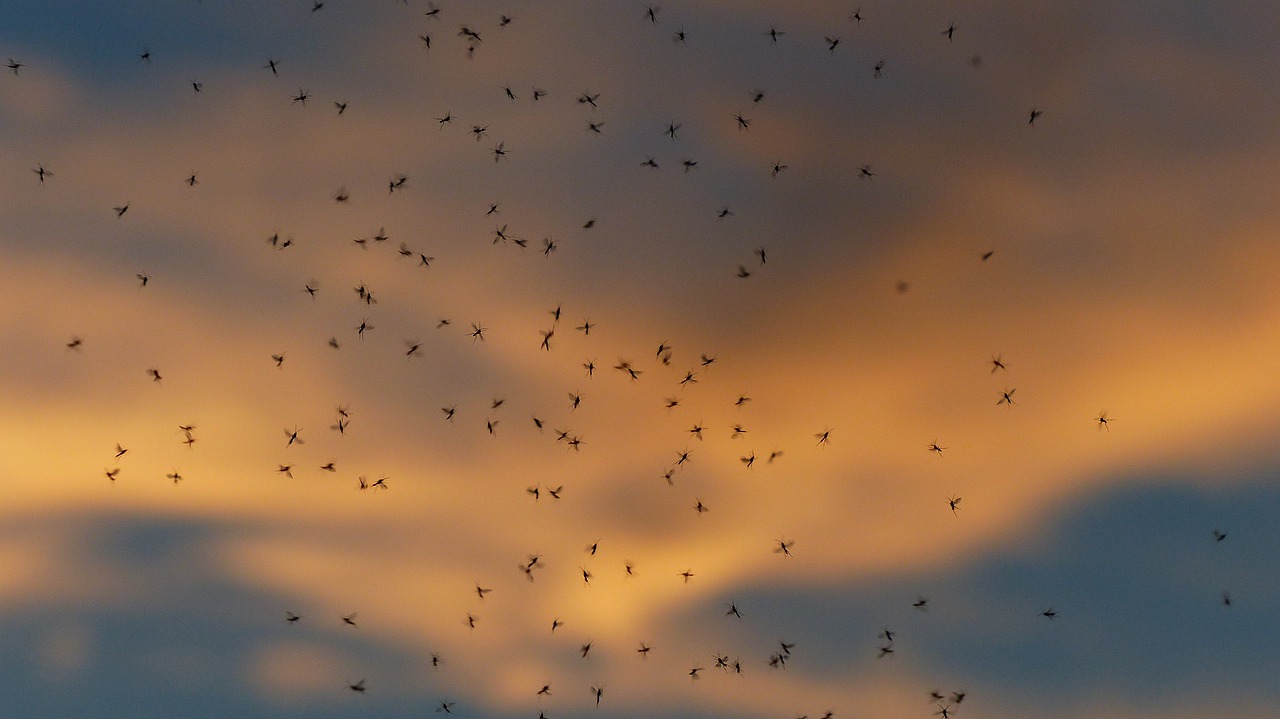
The growing concern of climate change has many aspects, but perhaps one of the most disturbing is the growth of the ranges and populations of mosquitoes and the consequent spread of mosquito-borne diseases. Experts have predicted that as the climate warms and changes, more and more areas will become favorable to these disease-carrying vectors and pose increased health risks to people around the world. This review article focuses on how climate change influences mosquitoes and how health policies should narrate this escalating concern.
The Climate-Mosquito Connection
Studies conducted in the past provide evidence of the relationship between temperature, rainfall, humidity as well as mosquito populations. It's obvious, warmer temperatures will spread various species of mosquitoes over a wider area. In their research, Gorris and her colleagues published in the Journal of Climate Change and Health, noted that of the nine species of mosquitoes they examined, all benefited from climate change suggesting that the prospects of greater global temperature means that malaria and other mosquito-borne diseases will continue to pose a global threat.
Temperature and Mosquito Habitats
All biological species of mosquitoes are affected by temperature. They, as with all other living beings, are able to spawn faster and are likely to live longer with warmer conditions. According to Dr. Victoria Ng, senior scientist at the Public Health Agency of Canada, warmer climate conditions mean a greater amount of such populations that were once cyclical to develop in a year.
Indeed, average land-surface temperatures have already increased by close to two degrees Fahrenheit from the preindustrial average level and by the end of this century, which is predicted to be nearly 5 oF. This warming trend will help in establishing new breeding places for the mosquitoes which did not earlier support mosquito colonies.

Changes in Precipitation Patterns and amount of Rainfall
There are also other aspects which come as precipitation in which alterations of the levels affect the population of the mosquitoes as well. This is because an increase in the amount of rain causes a bigger volume of still water to exist which provides an optimum condition for the mosquito larvae to multiply.
On the other hand, moderate drought conditions may result in residents collecting water for usage and in turn make them store water mostly in the containers. As observed by Dr Katie Anders from the World Mosquito Program, these extreme weather events of flooding and heat waves are frequent due to climate change, amplifying the likelihood of mosquito multiplication.
Public Health Risks: What's at Stake?
New threats for human health can be highlighted with rising mosquito populations:
Transmission of Disease: Mosquitoes are hosts to the pathogens causing malaria and other serious diseases, including dengue, yellow fever, Zika virus and West Nile virus.
More number of Infections: Every year, epidemics of these infections occur with reports by the WHO of hundreds of millions of infections and over one million deaths due to these infections.
More Dengue Fever Cases: Such epidemics have the most pronounced impact on either of the populations with – limited healthcare access, i.e.; the poorer communities.
According to MosquiTalk, a mosquito based blog and discussion platform, mosquitoes have shown a tendency to increase their range and adapt to new environments, even the regions that were previously free of dominating mosquito populations will face a more serious challenge in public health.
Expanding Geographic Range
With climate change allowing mosquitoes to new regions, communities that have not dealt with these pests before now may be in danger. For instance, southern Australia is presently witnessing its first serious outbreak of Japanese encephalitis – a disease endemic to rural Southeast Asia – due to the change in climate. This phenomenon is not unique; researchers predict that increasing global temperatures will place 8 billion or more people at risk for malaria and dengue by the year 2080.
According to Dr. Elizabeth McGraw from Penn State University, some areas may see lowered transmission of certain diseases due mainly to their warmer climates, but other places will see an increase in the number of vector species that are more suited to these warmer temperatures. This versatility makes it difficult to predict areas that will be plagued by outbreaks.
Increased Disease Transmission: How Temperature Matters
The science of how temperature influences transmission of any disease is not simple. For instance, larger temperature increases could lower the extrinsic incubation period – the ability of a mosquito to transmit a virus after it bites a virus-infected host – which leads to increased disease transmission rate. Studies show, for example, that the fertility ratio (R0) of several mosquito-transmitted arboviral diseases tends to rise as temperatures rise.
Also, there has been a 10% rise in the numbers of diseases caused by mosquitoes in Canada in the last two decades, which has been largely due to climate change stress. As cities become overcrowded with people who can easily be infected with the emerging viruses, such as the dengue virus or the West Nile virus, the effectiveness of public healthcare systems may be compromised.
Global Responses and Future Outlook
Considering the threats posed by the increasing mosquito populations in the period of climate change, global health organizations have been pushing for anticipatory actions. The WHO makes an emphasis on the need of better surveillance systems which can track the populations of mosquitoes and the spatial and temporal trends of the diseases they transmit. This knowledge is important as it demonstrates the rationale behind out future course of action.
Community Engagement
The role of community participation in the fight against mosquito-borne illnesses is crucial. The people will also be educated through the mass media on some of the precautionary measures that can be taken such as eliminating containers with stagnant water around the homestead and the use of repellents and it is expected that such measures will greatly minimize chances of transmission. Furthermore, tactics like fogging or the use of biological control agents may be introduced by local authorities as a way of eradicating mosquitoes.
Research and Innovation
In their bid to develop new strategies to cope up with the adverse effects of global warming on the transmission dynamics of future mosquito-associated pathogens, it is envisaged that climate biodiversity will be given high priority along with global observation systems for combating development, and genetic intervention and enhancement will need to be utilized.[5] For example, new approaches to xenotransplantation have been pioneered, such as the development of genetically modified mosquitoes capable of carrying a limited number of pathogens or possessing diminished life spans. Such options may drastically disrupt transmission cycles or perhaps provide a long-term solution for mosquito control.
Conclusion
The interaction between climate change and the global increase of mosquito populations is a challenge to public health that could be catastrophic for the world. As the temperature increases and the climate changes, communities have to brace themselves against the escalating threats of mosquito-borne conditions. If effective strategies from comprehension of these dynamics to community support and innovative research are employed, human societies can insulate themselves better against the continuing menace.
As we confront this global crisis together, informed action will be key in safeguarding our communities against these evolving challenges. Let's work together to address this growing threat!
The post Climate Change Linked to Rising Mosquito Populations: Experts Warn of Increased Health Risks appeared first on New York Tech Media.
© 2024 Benzinga.com. Benzinga does not provide investment advice. All rights reserved.
Comments
Trade confidently with insights and alerts from analyst ratings, free reports and breaking news that affects the stocks you care about.